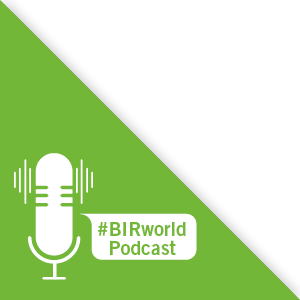The UK is back in lockdown, with deaths within 28 days of a positive COVID test now exceeding 90,000. By January 19, more than 4 million people had received their first dose of vaccine and the roll-out is expanding daily; the government has pledged that all people aged over 70 will be vaccinated by February 15. The metals recycling industry remains in operation as it is classed as essential.
Brexit officially took place on January 31 2020 but we continued trading as before, up to the end of the transition period on December 31 last year. The transition period was intended to provide businesses with time to prepare for Brexit, but a trade deal was not secured until the final weeks and most of those 11 months also coincided with a pandemic that diverted attention and resources elsewhere.
As well as grappling with new documentation requirements from January 1, there is also a requirement for haulage drivers planning to cross the Channel to obtain a negative COVID test within 72 hours of travelling. The Road Haulage Association is reporting that drivers with a negative test are then having to queue for up to eight hours while awaiting approval of the new border paperwork. The Department for Environment, Food & Rural Affairs says “the potential for further disruption remains high” owing to the pandemic and new border procedures following the end of the Brexit transition period.
After last year’s run-up in the copper and aluminium markets, prices have paused for breath and even fallen back slightly in early 2021. The strong pound and a doubling of export freight rates in recent times have also prevented UK buying prices from increasing as steeply as otherwise might have been the case.
Looking ahead, several factors are adding considerable uncertainty that markets do not like. Issues causing market participants significant anxiety include: the ongoing impact of COVID on the world economy; the effectiveness of the vaccines (and over what timeframe); the Brexit effect on the UK economy; the impact of the leadership change in the USA; whether the steep rise in export freight rates is a short- or long-term phenomenon; and the sustainability of better-than-predicted automotive sales. In the UK in January, the non-ferrous metals market and the volume of scrap available feel much reduced compared to the final two months of last year.
In the copper scrap market, some additional factors make forward planning trickier than usual. While Chinese demand remains strong, the country’s new quality standards have significantly altered the grades of copper scrap they can import, resulting in a temporary shortage of high-grade scrap and an oversupply of refining grades. Market participants have been left wondering how quickly these imbalances will stabilize. It is believed that, currently, 100% of containers are being inspected on arrival and will most probably be rejected if plastic is visible. Traders and merchants are being advised not to move material if they think it is risky. While China is still interested in importing UK scrap and sellers here are still keen to do business, three weeks in customs queues may cause cash-flow problems for some UK companies. Merchants are gaining no privileges from having their material CCIC-inspected as it is still going through the full customs inspection process. The advice to merchants is to send material bagged or cable-tied.
As a footnote, Global Recycling Day on March 18was created by BIR to help recognize and celebrate the important role that recycling plays in preserving our world’s precious resources and securing the future of our planet. It is a day for the world to come together and put the planet first, and it provides a huge opportunity for us to showcase the environmental benefits of recycling non-ferrous metals. So please play your part and spread the word.

Susie Burrage
Recycled Products Ltd (GBR), Board Member of the BIR Non-Ferrous Metals Division
Country
 United Kingdom
United Kingdom
